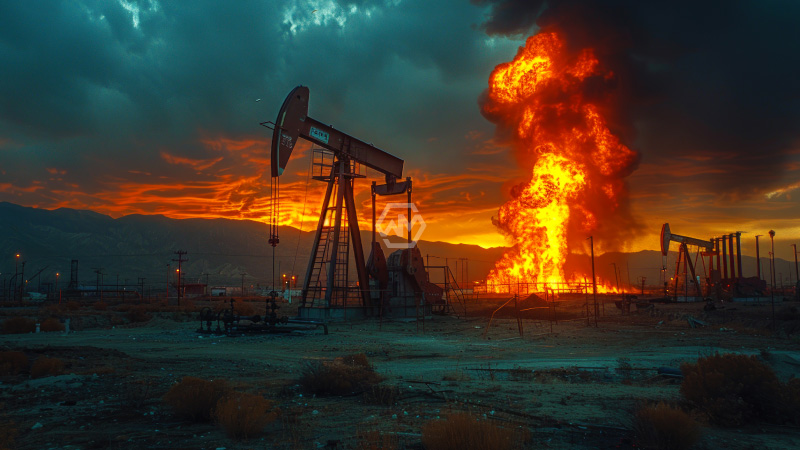- Explosive drones hit five oil fields in Iraqi Kurdistan within a week, halting operations.
- Norwegian and U.S. firms affected; infrastructure damage but no casualties reported.
- Kurdistan officials blame Iran-backed militias as part of wider geopolitical conflict.
A series of coordinated drone attacks has forced a temporary shutdown of multiple oil fields in Iraq’s semi-autonomous Kurdistan region, marking a severe escalation in the region’s security threats.
Although no group has officially claimed responsibility, senior Kurdish officials have publicly accused Iran-aligned militias of orchestrating the drone campaign.
Explosive Drones Target Kurdistan’s Oil Fields Amid Escalating Baghdad-Erbil Frictions
Norwegian company DNO ASA, which manages both the Tawke and Peshkabir fields, confirmed multiple explosions involving surface equipment and storage tanks. The company has halted operations pending a full damage assessment. Similarly, U.S.-based Hunt Oil experienced a drone strike on its Ain Sifni facility in Dohuk, while UK-listed Gulf Keystone proactively shut its Shaikan field to prevent potential harm, despite it not being directly targeted.
Earlier incidents include strikes on HKN Energy’s Sarsang field and the heavily producing Khurmala field, both of which contribute substantial volumes to Kurdistan’s total output. The cumulative impact of these attacks is a substantial blow to Kurdistan’s energy sector, which had already been reeling from legal uncertainties and logistical constraints following the closure of the Ceyhan export pipeline in 2023.
Security experts and regional analysts believe the pattern of drone attacks reflects intensifying proxy confrontations between Iran and the United States. By targeting oil infrastructure, Iran-backed groups may be sending a geopolitical message aimed at undercutting U.S.-aligned interests in the region. These assaults also serve to weaken the Kurdistan Regional Government (KRG), which maintains an uneasy autonomy within Iraq’s federal framework.
Baghdad’s federal authorities have pledged a formal investigation, but confidence remains low among Kurdish leaders. The KRG has denounced the strikes as terrorist acts, urging international stakeholders to recognize the strategic threat these non-state actors pose. With both Kurdistan’s economy and political stability hanging in the balance, restoring secure oil production has become an urgent priority.
The recent drone attacks not only disrupt vital oil operations in Iraqi Kurdistan but also expose the region’s geopolitical fragility. As blame shifts toward Iran-backed militias, these incidents underline the growing influence of proxy warfare in shaping Iraq’s future.
“In war, truth is the first casualty—but in proxy wars, it’s the economy that falls silent first.” — Anonymous geopolitical analyst



